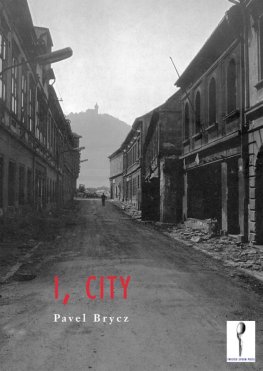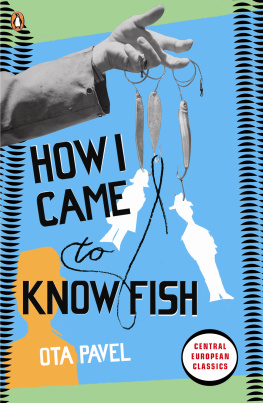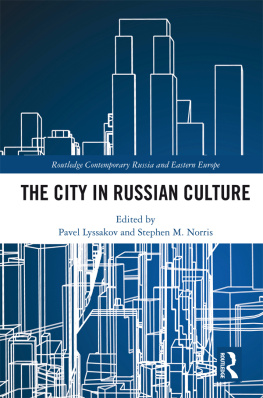This book is in copyright. No part of this publication may be reproduced, stored in a retrieval system or transmitted in any form or by any means without the prior permission in writing of the publisher, nor be otherwise circulated in any form of binding or cover other than that in which it is published without a similar condition, including this condition, being imposed on the subsequent purchaser.
Chapter 1
Departure or Flight?
O n the night of October 27, 1910, an unbelievable event took place in the Krapivensky District of the Tula Province, one that was exceptional even for such an extraordinary place as Yasnaya Polyana, the ancestral estate of the internationally acclaimed writer and thinker Count Lev Nikolayevich Tolstoy. The eighty-two year old Count fled from his home in secret, his destination unknown, escorted by his personal physician, a man named Makovitsky.
The eyes of the press
The news media of that time did not differ greatly from the media today. News of the scandalous events spread like wildfire throughout Russia and across the world. On October 29th, urgent telegrams from Tula began arriving at the Petersburg Telegraph Agency, to be reprinted in the newspapers the next day. News has come in that has surprised everyone, to the effect that L.N. Tolstoy, escorted by Dr. Makovitsky, has unexpectedly fled Yasnaya Polyana and gone away. On leaving, L.N. Tolstoy left a letter, in which he declares that he is leaving Yasnaya Polyana forever.Tolstoys fellow traveler, Makovitsky, didnt even know about this letter, written by L.N. for his wife, who was asleep, and handed to her in the morning by their youngest daughter, Sasha. He learned of its existence from the newspapers, like everyone else.
The Moscow-based newspaper Russkoye Slovo (Russian Word) was quickest off the mark. On October 30th, it published a report by its own correspondent in Tula, containing detailed information about what had happened at Yasnaya Polyana.
Tula, 29, X (urgent). Having returned from Yasnaya Polyana, I announce the departure of Lev Nikolayevich, with the details.
Lev Nikolayevich left yesterday, at 5am, when it was still dark.
Lev Nikolayevich went to the coachmans quarters and ordered that the horses be hitched to the cart.
The coachman Adrian did as instructed.
When the horses were ready, Lev Nikolayevich, together with Dr. Makovitsky, taking a few necessary items, laid out earlier that night, went to the Shchekino Station.
The postman Filka went in front of them, lighting the way with a torch.
At the Shchekino Station, Lev Nikolayevich bought a ticket to one of the stations on the Moscow-Kursk railway line and left on the first train that came along.
When it became known at Yasnaya Polyana that Lev Nikolayevich had upped and left, there was a terrible fuss. The despair of Lev Nikolayevichs wife, Sofia Andreyevna, defies description.
This report, which the whole world was talking about the next day, was printed not on the front page of the newspaper, but on the third. The front page, as was customary at that time, was reserved for advertisements for all manner of products.
San Rafael wine the stomachs best friend.Medium sturgeon. Twenty kopecks a pound.
After receiving the nightly telegram from Tula, Russian Word immediately sent its correspondent to the Tolstoys Hamovniki House (today this building is the house-museum of L.N. Tolstoy, between the Park of Culture and Fruzensky subway stations). The newspaper was hoping that the Count had perhaps fled from Yasnaya Polyana to his home in Moscow. But, as the newspaper put it, Tolstoys lordly old house was quiet and calm. There was nothing to suggest that Lev Nikolayevich might soon be coming back to the old hearth and home. The gates were locked. Everyone inside was fast asleep.The reporter sent off in pursuit along the supposed route of Tolstoys flight was the young journalist Konstantin Orlov, a theatre critic and the son of one of Tolstoys followers, the teacher and populist Vladimir Fyodorovich Orlov, who was portrayed in the stories Dream and There Are None that are Guilty in the World. He caught up with the fugitive in Kozelsk and accompanied him in secret as far as Astapovo, from whence he informed Sophia Andreyevna and Tolstoys children by telegram that their husband and father was seriously ill and was currently at the central railroad station, at the home of the station master, I.I. Ozolin.
If it wasnt for Orlovs initiative, the family would not have found out about the whereabouts of the gravely ill L.N. until the newspapers all announced where he was. Need it be said how painful such a thing would have been for the family? Therefore, by contrast with Makovitsky, who felt that Russian Word had been behaving like detectives on a manhunt, Tolstoys eldest daughter, Tatiana Lvovna Suhotina, according to her memoirs, was grateful till her dying day to the journalist Orlov.
Father is dying somewhere not far away, and I dont know where he is. And I cant take care of him. It may be that I will never see him again. Will they at least allow me to see him on his death-bed? A sleepless night. Genuine torture, Tatiana Lvovna later wrote of what she and her family were going through after Tolstoys flight (to use her word). But a man was found whom we did not know, who understood and took pity on the Tolstoy family. He sent us a telegram: Lev Nikolayevich is at Astapovo at the station masters house. He has a temperature of 104o.
Generally speaking, it has to be said that in their attitude toward his family and, first and foremost, toward Sofia Andreyevna, the newspapers behaved in a more controlled and delicate manner than they did toward the fugitive from Yasnaya Polyana, whose every step was tracked mercilessly, even though all the journalists knew that in his farewell note Tolstoy had asked: dont search for me! Please dont come after me, if you find out where I am, he had written to his wife.
In Belevo, Lev Nikolayevich got off the train and had some fried eggs in the station dining room, the journalists reported, savoring this indulgent act on the part of the frugal Tolstoy. They interrogated his coachman and Filka, the servants and peasants from Yasnaya Polyana, cashiers and waiters at the stations, the driver who took L.N. from Kozelsk to the Optina Monastery, the hotel monks and anyone who might be able to tell them the travel plans of this eighty-two year old man, a man whose sole desire was to run away, to hide, to become invisible to the world.
Dont search for him! the Odessa News exclaimed cynically, addressing the family. Hes not just yours he belongs to all of us!
His new place of residence will of course be revealed very soon, the Petersburg Gazette coolly announced.
L.N. was not fond of the newspapers (although he kept an eye on them) and made no secret of it. Not so with S.A. The writers wife understood well that her husbands reputation and her own reputation, like it or not, would be shaped by what people read in the press. She was therefore always willing to talk to journalists and give them interviews, explaining away the latest oddities in Tolstoys behavior or the things he said and never forgetting, when doing so (this was her weakness) to outline her own role alongside the great man.









